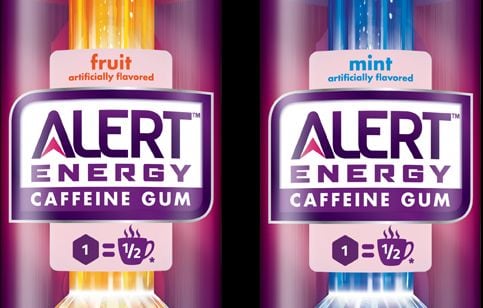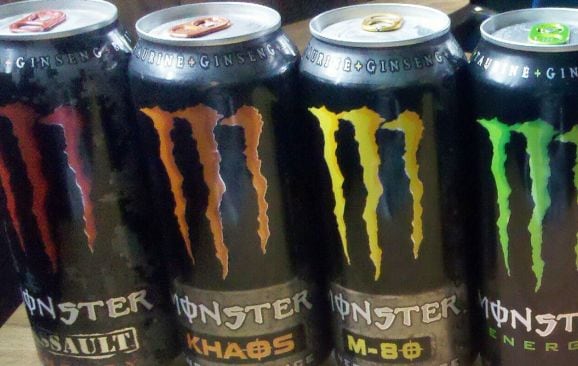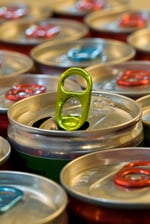Speaking at the IFT’s webinar, ‘The Buzz on Caffeine: New Developments in Safety, Regulation and Adverse Event Reporting’ toxicologist James R. Coughlin, PhD, CFS, president, Coughlin & Associates, said the “majority of caffeine even from teens does not come from energy drinks but from coffee and soft drinks”.
A new study published online in Food and Chemical Toxicology on November 1 (D.C. Mitchell et al, Beverage caffeine intakes in the US) analyzed data from seven-day diet records of 42,851 Americans during the period Oct 2010 to Sept 2011, he said.
And this revealed that caffeine intakes from energy drinks accounted for less than 2% of total daily mean intakes for all caffeinated beverage consumers, and concluded that “caffeine intakes in the US remain driven by the consumption of coffee and, to a lesser extent, tea and carbonated soft drinks”.
Meanwhile, “energy drinks, energy shots, and chocolate milk beverages contributed minimally to total caffeine intake.”
Caffeine intakes in the US remain driven by the consumption of coffee
The greatest proportion (9–10%) of caffeinated beverage consumers consuming energy drinks were teenagers (13–17 years) or young adults (18–24 years); however, only 5–7% of total caffeine intake was attributable to energy drinks in these age groups.
Meanwhile, the mean daily intake of those that did consume caffeine was just 165mg/day, with mean intakes highest in the 50-64year age group at 226mg/day.
Even the heaviest caffeine consumers were not drinking huge amounts, according to the survey data, which showed that intakes at the 90th percentile from all caffeinated beverages were slightly above 400mg/day for adults aged over 35 years.
Single doses under 400mg do not increase frequency of cardiac arrhythmias in healthy persons or patients with ischemic heart disease, serious ventricular ectopia

Addressing safety concerns about caffeine, Dr Coughlin said that “clinical studies show that single doses of caffeine under 400mg do not increase the frequency of cardiac arrhythmias in healthy persons or patients with ischemic heart disease or those with serious ventricular ectopia.”
Meanwhile, many of the “myths and fears” about caffeine were based on “small, poorly conducted human studies”, or studies where caffeine was given in massive doses to people that were not regular coffee/energy drink drinkers or fed in huge doses to animals for a lifetime, he claimed.
A consumer that has a cup of coffee/can of energy drink and is not a regular drinker “may have a slight increase in heart rate or systolic blood pressure but people’s tolerance to this develops if they regularly drink coffee or other caffeine containing soft drinks”, he added.
However, “epidemiological studies generally do not support any relationship between caffeine use and hypertension”, he claimed, noting also that caffeine is not classified as an addictive drug in the latest edition of the American Psychiatric Association’s ‘bible’, DSM-5 (Diagnostic and Statistical Manual of Mental Disorders).
What does caffeine do?
An adenosine receptor site antagonist, caffeine is a stimulant that can influence the central and the peripheral nervous system and has been shown to improve cognitive performance and mental processing, increase wakefulness, and increase our capacity for physical work and exercise, he said.
There also appears to be an association between caffeine consumption and a reduced risk of Parkinson’s disease, Alzheimer’s disease, depression and suicide - although so far, the evidence shows a correlation, not causation, he stressed.
While high doses of some of the other ingredients used in energy drinks have been shown in some studies to have cognitive effects, they were typically included in such small amounts in energy drinks that the “the alertness and enhanced mental performance that energy drinks provide” was primarily due to the caffeine, he claimed.
“Little information is available that demonstrates that ingredients other than caffeine in energy drinks add to the improvement of cognitive effects or physical effects, or that they cause adverse effects.”
Those DAWN Report figures…

In a presentation at the same webinar on caffeine and adverse events, Rick Kingston PharmD, president, regulatory and scientific affairs at SafetyCall International and clinical professor of pharmacy at the University of Minnesota, looked at data published by the DAWN (Drug Abuse Warning Network) Report in January showing that energy drink related visits to US emergency rooms had doubled from 10,068 in 2007 to 20,783 in 2011.
This sounded alarming, he said, but energy drink consumption may have been entirely incidental in these visits, as large numbers of the patients in question had consumed them in combination with alcohol, illegal drugs or prescription medication, which made it impossible to determine what if any contribution energy drinks had made to their problems.
There was also a bias against energy drinks built into the data collection, he said, as DAWN did not record how much coffee or other sources of caffeine ER visitors had consumed. Meanwhile, the DAWN report did not include any information about the general health of those who may have consumed energy drinks, or what symptoms brought them to the ER in the first place, he added.
“We have to put some context around this report and the way that the data is collated”.
At CRN we don’t believe that new laws [on energy drinks/caffeine] are necessary
In a presentation on labeling and regulations, Rend Al-Mondhiry, regulatory counsel for trade association the Council for Responsible Nutrition (CRN), said: “At CRN we don’t believe that new laws are necessary”.
However, the CRN advised members to voluntarily list caffeine content in mg/serving from added and naturally occurring caffeine on pack, and to include warnings for use by children, those sensitive to caffeine, and pregnant or nursing women, on products that contain 100mg+ caffeine per serving.
Caffeine’s GRAS status

As for caffeine’s regulatory status, caffeine is listed as GRAS (generally recognized as safe) for use in cola-type beverages at 200ppm or 71 mg per 12oz, she said.
If it is used in energy drinks or other foods and beverages, a company must be able to prove it is GRAS for its intended use and in the amount used - if the FDA asks for this information.
Click here to register to listen to the webinar on-demand.
Click here to read about the dividing line between liquid energy supplements and conventional energy drinks and foods.
